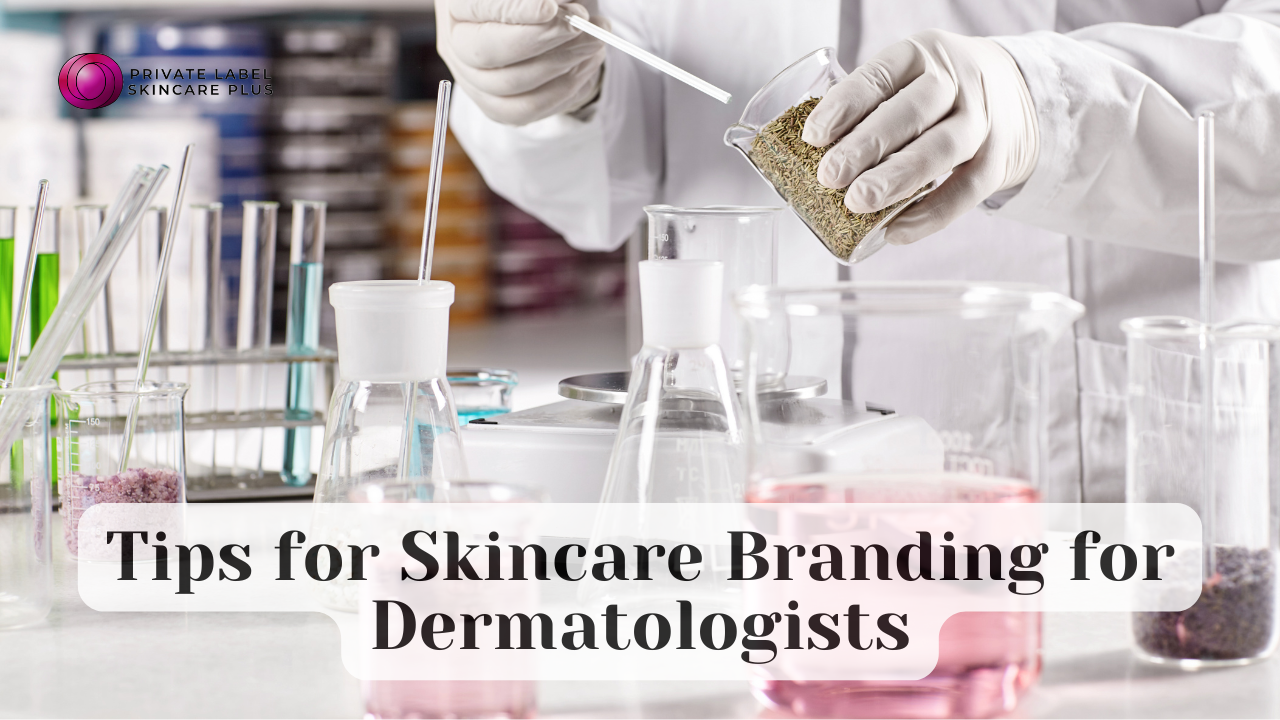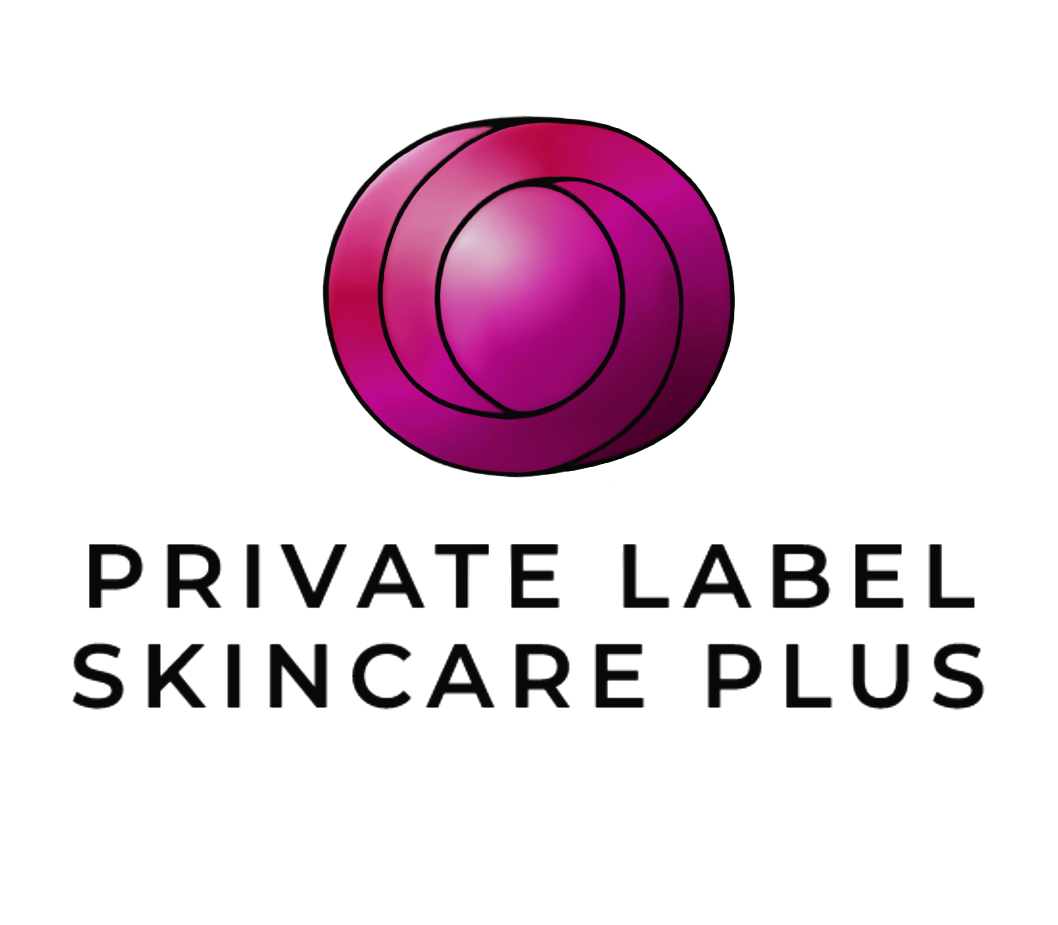The skincare industry is full of packaging and promises. But the only thing that separates a skincare brand is the integrity of their formulations and the quality of their ingredients. For private label skin care brands looking to earn credibility and consumer trust, clinical-grade skincare ingredients can be revolutionary.
As consumer knowledge increases, so too does the demand for transparency, efficacy, and proven outcomes. Today’s skincare shopper is becoming increasingly educated and invested in their skin. They read the lists of ingredients, understand the concentrations, and need visible results. For private label skin care brands, matching product formulations with clinical-grade actives is no longer a nice-to-have: it is a must-have in order to differentiate itself from the competition.
Let’s dive deeper into the power and significance of clinical-grade formulations in private label skincare and why they are changing the future of beauty and wellness.
Understanding Clinical-Grade Ingredients
Clinical-grade ingredients are substances that have been scientifically tested using dermatological or medical aesthetic processes. They will undergo rigorous scientific screening and clinical testing to determine safety, effectiveness, and stability. While some cosmetic grade ingredients are intended for sensory, superficial benefits (e.g., to smell good), clinical grade ingredients are intended to affect skin concerns at the cellular, or dermal, level.
What exactly are clinical-grade skincare ingredients?
- It is utilized by dermatologists, estheticians, or medical professionals.
- It is supported by peer-reviewed research and clinical evidence.
- It will result in higher purity, concentration, and stability than sold in stores over the counter.
- It will achieve measurable, consistent, and visible results over time.
Some commonly used examples are retinoids (Retinol), peptides, ceramides, hyaluronic acid, niacinamide, various alpha hydroxy acids (AHAs), salicylic acid, and antioxidants (vitamin C and E). Again, it’s not just the ingredient; it’s the quality/structure of delivery, and how it works with other ingredients in the formula.
Why Clinical-Grade Ingredients Matter for Private Label Brands
There is often some perception of private label skincare for doctors being a ‘generic’ or mass-produced brand in the common person’s head. Some current-day manufacturers of private label skincare have quickly transformed that stereotype by providing dermatologist-developed, clinically tested products that, in many cases, can compete with the high-end skincare labels.
For a private label brand to connect with educated consumers and skin care professionals alike, ingredient transparency and clinical credibility are significant considerations that need to be in place.
Here’s why clinical-grade skincare ingredients should be a pillar of your private label skincare line:
1. Backed by Science, Not Hype
Today’s consumers are drowning in marketing fluff. Words and phrases such as “anti-aging”, “miracle serum” and “glow-boosting” mean very little if there are no facts or evidence given. Clinical-grade ingredients contain science. They are highly tested in a scientific environment, many times under the supervision of dermatologists, controlled testing, double-blind studies, and with comparative outcomes.
This is great news for your brand and builds consumers’ confidence that purchases can lead to visible results.
2. Targeted Treatment for Real Skin Concerns
Most consumers don’t want to just “feel nice” when they use a beauty product; they want results. That’s why clinical grade formulations have a solution-oriented approach to real skin issues: acne, pigmentation, fine lines & wrinkles, dehydration, barrier repair, sensitivity, and more.
Brands can also use strong actives like niacinamide (for skin brightening), peptides (for anti-aging), or salicylic acid (for acne control) for each distinct indication, enabling them to develop lines that target specific skin concerns and deliver real results with a functional and marketable solution.
3. Enhances Brand Positioning
If your private label skincare brand is looking to move from value to a more premium and results-driven approach, it starts with the use of clinical-grade skincare ingredients. These formulations will enable you to build credibility in the cosmeceutical or derma-beauty spaces, which are areas that value clinical efficacy as much as the aesthetics of the packaging.
This will make it easier to generate relationships with dermatology clinics, medispas, and upscale retailers that are interested in private branding flexibility and evidence-based skincare formulations.

Clinical-Grade vs Cosmetic-Grade: The Key Differences
Understanding the distinction between cosmetic-grade and clinical-grade components emphasizes why this investment is critical for your product line.
| Feature | Cosmetic-Grade | Clinical-Grade |
| Purity | Variable | High |
| Testing | Minimal, often for basic safety | Rigorously tested in clinical trials |
| Concentration | Lower | Therapeutic/high-performance levels |
| Results | Aesthetic or temporary | Functional and long-term |
| Usage | Mass-market | Medical-grade skincare products, private label, or prescribed |
Building a Private Label Line with Clinical-Grade Actives
Developing a private label skincare product line using clinical-grade skincare ingredients isn’t just about adding a few powerful ingredients to a jar. It involves formulating strategically, performing stability testing, assessing compatibility, and often developing targeted delivery systems.
Some of the critical steps are:
1. Identify Skin Goals and Hero Ingredients
It starts by understanding the pain points of your target customer, such as aging, acne, dullness, sensitivity, etc., so you can develop their skin goals using hero clinical ingredients, including:
- Retinol for cellular turnover and anti-aging
- Vitamin C (ascorbic acid) for antioxidant protection and brightening
- Hyaluronic Acid (low and high molecular weights) for depth of hydration
- Niacinamide for barrier support and sebum regulation
- AHA/BHA for exfoliating and improving skin texture
2. Choosing a Manufacturer/Partner with Reputable Labs
Not all private label labs are equal or hold the same standards. Choose a manufacturing partner that understands clinical formulation science, one that is fully transparent, and has dermatological or pharmaceutical-grade facilities. Ask for Certificates of Analysis (COA’s) and about sourcing ingredients, bioavailability, and shelf-life validation.
3. Delivery systems that keep consumers safe
Many clinical-grade actives are unstable or harsh on the skin if they are not encapsulated or buffered properly. For example, Vitamin C will oxidize very quickly if it is not formulated with the right pH or kind of delivery base. There are various advanced delivery systems, including micro-encapsulation, liposomal delivery, and slow-release polymers, to stabilize actives and provide controlled absorption without the risk of safety concerns on skin.
Communicating Clinical Value to the Consumer
The real success of clinical-grade skincare ingredients lies not in the formulation, but in the storytelling and education, creating clarity about clinical efficacy and results, while not leaving your audience feeling overwhelmed or abandoned to the clinical.
What is the best way to market novel ingredients and tools of clinical-grade do it include:
- Utilizing before-and-after images with real users
- Highlighting key active ingredients and concentrations
- Using clinical result studies or presenting third-party testing
- Accessing one of the many science delivery applications for meaningful infographics or brief videos
There is little room for exaggerated claims or discussing benefits outside of what is evidence-based.
The combination of both educational processes and relatability helps consumers feel confident in what they buy and establishes long-term loyalty to the brand.
Compliance and Regulation: What You Must Know
Given that clinical-grade products straddle the world of cosmetics and therapeutics, it is essential to ensure that you adhere to the appropriate regional regulatory landscapes.
For example:
- FDA (USA): ingredients must not claim to be “treating or curing disease” unless they are OTC Drugs approved by the FDA.
- EU Cosmetic Regulation (EC No 1223/2009): which is about ingredient safety, but also states that the use of animal testing is banned, plus requires a safety file for the cosmetic product.
- CDSCO (Central Drugs Standard Control Organization, in India) also has regulations surrounding cosmeceutical claims.
Make sure your manufacturer supplies, as appropriate, the necessary MSDS (Material Safety Data Sheet), PIF (Product Information File), and stability testing. This protects your brand and your customers.
Benefits for Long-Term Brand Value
Incorporating clinical-grade skincare ingredients into your private label skincare products is more than considering just the short-term performance—it’s about creating a sustainable long-term brand value.
Long-Term Brand Value in detail refers to:
- Greater trust from consumers and loyalty.
- Ability to partner with an aesthetic clinic or skincare professional.
- Higher margins due to perceived value and efficacy.
- Ability to gain influencer/dermatologist endorsements.
- Better reviews and word of mouth.
In conclusion, clinical grade actives allow for scalable success, and any heightened brand awareness will allow for brand differentiation and engage consumers who trust your brand.
Conclusion: The Future is Clinical, Clean, and Custom
Private label skincare is now more than just putting a logo on a bottle! Today, it is delivering purposeful products backed by science, powered by clinical-grade skincare ingredients, and designed to address genuine skin concerns. As consumers become increasingly sophisticated and results-driven, one of the most significant indicators of your brand’s mission will become your brand’s integrity and the clinical efficacy of your product.
Whether you are launching a minimalist collection of skin care products, a luxury anti-aging line, or essentials to combat acne, one of the best investments you can make as a private label brand is to use clinical-grade actives. Partner with a private label skincare lab that formulates clinical-grade products that are science-based and backed. Let’s create products that your consumers will not just love, but depend on.
Contact us today for a consultation or sample request. Your brand, your label – our science!


